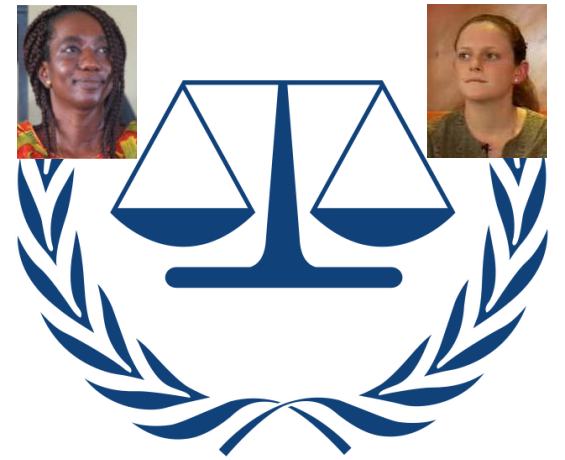The States Parties of the International Criminal Court are meeting until newt week for the eleventh session of their annual Assembly, during which they will discuss a range of issues relating to the non-judicial functioning of the ICC, including its budget. The international justice landscape has changed a lot since the Assembly first met back in 2002: the number of ICC States Parties has almost doubled, now standing at 121 States; there is a new international court, the Special Tribunal for Lebanon, which was established to shed light on the events surrounding the assassination of Lebanese Prime Minister Hariri; the Special Court for Sierra Leone, which also opened its doors ten years ago, has almost concluded its work; and both General Mladic and Mr Karadzic, two of the key actors in the conflict in the former Yugoslavia, are finally facing trial.
One thing that has not changed is the need for international courts and tribunals to engage with people affected by the crimes those courts and tribunals investigate and prosecute. Whichever way you slice the cake – be it on practical or ideological grounds – outreach is essential to ensure the spread of correct information among, and to get feedback from, victims and affected communities. The purpose of outreach is to prevent the spread of misinformation and manage expectations, so as to avoid disappointment and disillusionment. The purpose of outreach is not to promote support, although this frequently occurs as a result of outreach, but to put people in a position where they have sufficient information to decide for themselves whether or not they want to support and participate in the work of international courts and tribunals. This, essentially, is the essence of outreach: engaging victims and affected populations and empowering them so they may participate in processes that were, when all is said and done, established for them.
There are many ways to do outreach; the central element that makes something “outreach” or not is whether it engages with victims and affected communities in two-way dialogue and whether it promotes understanding by victims and affected communities about international justice, on the one hand, and by international courts and tribunals about the needs and perceptions of victims and affected communities, on the other hand. Outreach activities can cover a diverse range of activities such as radio programs, training seminars, drama and informal associations like the Accountability Now clubs in Sierra Leone. The range of outreach materials is equally diverse: comic books, newspapers, journals, posters, song and pictures. The potential scope of outreach activities and materials is really only limited by imagination and by what will actually work to engage with people in different communities.
Nonetheless, outreach is not a game and it is not about creating a happy family where everyone gets on. It is a necessity for international courts and tribunals to operate effectively and efficiently. Outreach promotes cooperation between witnesses and investigators; people who understand what a court is about are more likely to cooperate with it. When the whole village understands what the court is about, there are generally fewer security concerns associated with specific individuals speaking with investigators. Outreach also supports cooperation between States and international courts and tribunals; a population hostile to international justice is not conducive to their country arresting or transferring suspects to face trial, as we saw only too often in the former Yugoslavia. Outreach is also essential for ensuring international courts and tribunals can have a positive impact in the political and social life of a country and leave a positive legacy in respect of peace, justice and the rule of law.
A recent survey on the impact and legacy of the Special Court for Sierra Leone in Sierra Leone and Liberia conducted by the international NGO No Peace Without Justice, together with Liberian and Sierra Leonean partners, established that the majority of people in Sierra Leone and Liberia felt the Special Court had contributed to the restoration of peace and the rule of law, and had provided redress, in the form of justice, for the crimes committed during the war. This is a remarkable finding, especially given the scepticism many openly expressed when the Special Court was first conceived of in July 2000 as to whether it would be an obstacle to peace, whether it would be able to play a role in post-conflict reconstruction and, frankly, whether it was really worth it.
The findings from the survey show without doubt that it has been worth it. They also show that the main reason the SCSL had the impact it did was twofold: first, because of its innovative outreach program, as a result of which more than 90% of people in Sierra Leone and Liberia had heard of the Court and 65% were interested in its work. Second, because of the vision established early on in the court’s formative years, thanks mainly to the first Registrar, the late Robin Vincent, and the first Prosecutor, David Crane, of the court as an institution that was responsive to the needs and expectations of the people affected by the crimes it was investigating and prosecuting. The efforts undertaken to make this vision tangible and real should be particularly praised considering the severe financial constraints faced by a Court relying solely on voluntary contributions. Outreach activities have also been affected by frequent shortfalls, which have only been overcome through the extraordinary efforts of its staff and the cooperation of Sierra Leonean civil society. However, resources dedicated to outreach have been among the best invested, as this investment is what ensured the relevance and impact of all other SCSL outcomes.
While the 121 States Parties to the ICC are meeting in The Hague, it is to be hoped that they will take these lessons and best practices on board. The ICC has made great strides in its own outreach work, but to reach out to victims and affected communities in its seven situation countries, it needs both proper financial support and proper policy guidance. The 121 States who make up the Court’s guiding body would do well to adopt the vision of Mr Vincent and Mr Crane and take decisions in support of outreach that will allow the Court to be responsive to the needs and expectations of millions of people who are looking to it for justice and redress.
* Binta Mansaray is Registrar of the Special Court for Sierra Leone and former Head of its Outreach Unit, Alison Smith is Legal Counsel of No Peace Without Justice
- Read the Op ed as published in Slate Afrique (French)



